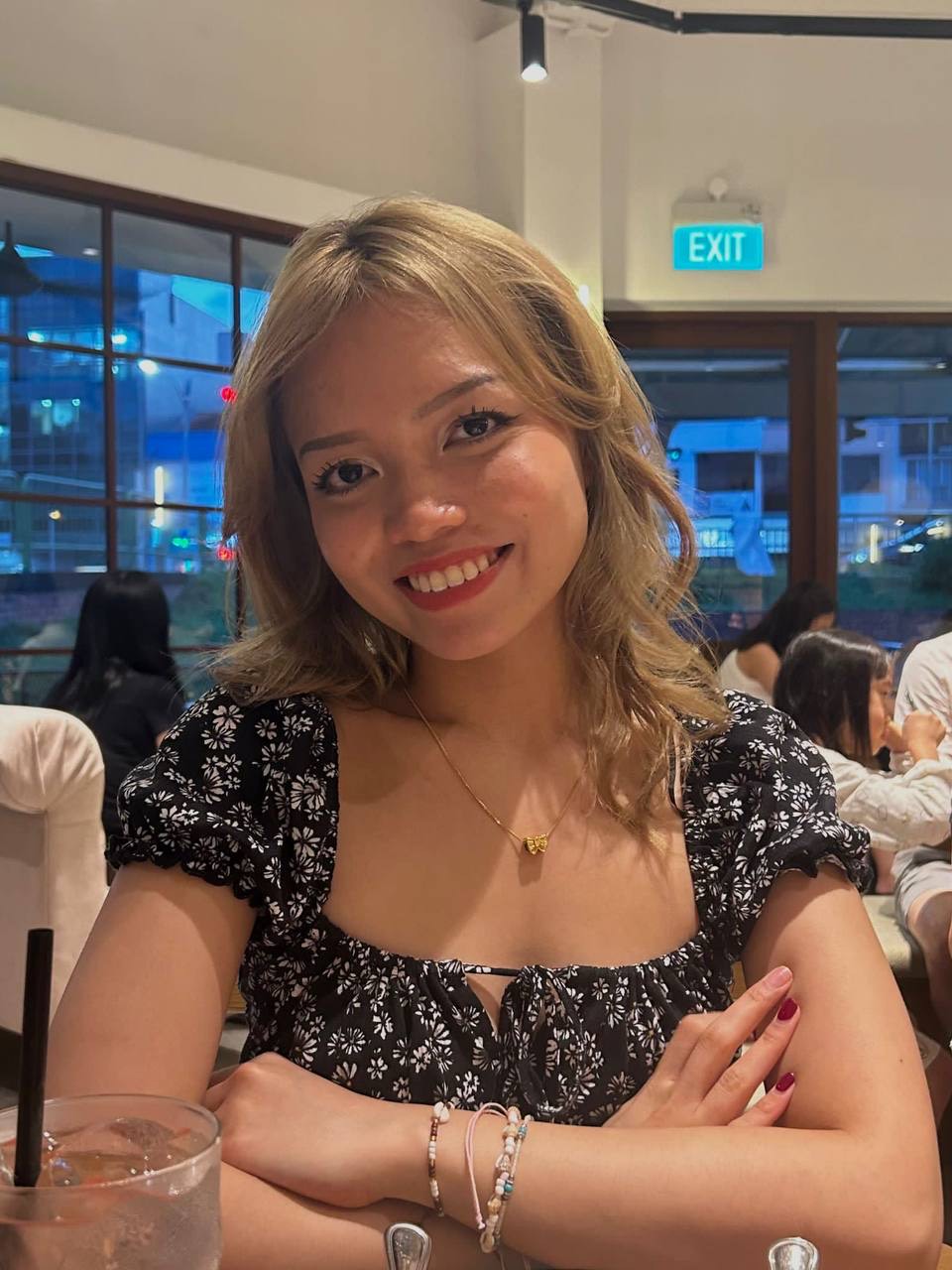Meet Ellyana - Liberal Arts in Social Sciences student in SOGOLAS
A third-year Liberal Arts in Social Sciences student shares her experiences as an international degree student in Tallinn University.

1. Tell me a little about yourself.
My name is Ellyana, and I study Liberal Arts in Social Sciences. I’m interested in childhood development, more specifically in the realm of mental health. I’m from Singapore, but I’ve always been fascinated by European history and culture, which is why I decided to move abroad. I like to read and write and I prefer spending my time on creative outlets as such.
2. What are your hobbies? Does studying leave you enough time to partake in them?
My hobbies are reading and writing, mostly, but I also like to sing sometimes. Because I work on top of my full-time studies, I usually write or read whenever I have time—for example, on the bus on the way to classes or to work, or on the way home. Whenever I feel like it and whenever I can, I try to set aside one day a week to be able to partake in my hobbies and to wind down. This practice is very important to me every week, because I have a rather full schedule. Of course, there are some periods when I’m able to indulge in my hobbies or interests more, but I always try to find time for it.
3. Why did you choose Tallinn University and not, for example, a university anywhere else in the European Union or in Singapore? Furthermore, why did you choose to study Liberal Arts in Social Sciences?
I chose Tallinn University because it offered the program I was interested in, and I really wanted to study abroad. I found that Tallinn and Tallinn University offered more affordable options in terms of tuition fees and general living costs, which was an important factor for me as I would be covering all the costs myself. In general, Estonia seemed like a much better place than anywhere else in the European Union for me personally, as well as financially. As for Singapore... it’s a
different system, it would’ve taken me longer and would be more difficult for me to get into university there. Ultimately, I decided that the best option for pursuing higher education was to study abroad. So, I chose Estonia. I had initially planned on applying to Audiovisual Media, but I realized that my interests were more directed towards the field of social sciences, such as sociology and psychology.
4. Do you work during your studies? If yes, then where? Would you say it’s difficult to find a job as an international student?
I work at Balti Jaama Turg as a manager and a social media manager for a bubble tea shop. It took me a couple of weeks to find that job, and I was lucky enough to find this job. I was also lucky because they didn’t mind that, at that time, I didn’t not speak any Estonian. I would say it’s rather difficult to find a job as an international student if you don’t speak the language at all, especially if you’re looking to work in the customer service field. However, there are plenty of options for remote work, as well as international companies that don’t have language requirements. So, I guess it depends on where you look and what kind of job you can or want to do.
5. How often do you feel homesick? What do you miss about your home country the most?
I would say I feel homesick about half the time. I grew up in a big family, so everyone was always close to each other. Studying abroad on my own was a massive change and it made it harder to connect to my family in some ways. Besides close friends and family, one thing I’ve missed the most is the food. Singapore has a big food culture, it’s usually the main way that people connect, bond, and appreciate each other, but, unfortunately, there’s nothing of the sort in Tallinn.
6. What are your favorite things about your life in Tallinn?

7. In your opinion, what are the benefits of being an international student?
I think that being an international student exposes you to a lot of different people, which can be rather useful in understanding people and society a little better. It also exposes you to different ideas and values, pushing you to think beyond your bias or your comfort zone. What I like the most about being an international student is that I’m able to discuss the same concept from a European vs. Asian perspective. In particular, that has been an interesting practice in lectures.
8. Do you have a specific memory that perfectly captures the kind of life you’ve been living in Tallinn?
I don’t have one memory in mind at the moment, so instead I’d like to explain the kind of life I’ve been living in Tallinn. To start with, I really appreciate the slow life that I have here, because Singapore is a very fast-paced, intense culture, both work- and study-wise. Studying and working in Tallinn is less intense, and there’s generally less pressure from my coworkers, bosses, and customers than I would have in Singapore. When I go to classes, I talk with my friends. Sometimes, we go to a cafe to get some work done together, and usually have a conversation for
a few hours. When I go to work, I get to improve my level of Estonian by speaking with the customers. On some lucky days, I have some interesting conversations with them, which is the fun part of working in customer service. I lead a nice, calm life where I feel like I’m able to appreciate my surroundings without speeding through life. I tend to focus on things I have to do while also making time to hang out with my friends and partake in my hobbies.
9. In ten years, where would you like to be living and what would you like to be doing?
I have no specific plans on where I’d like to live, but if I could pick anywhere, it would ideally be either in Italy, Greece or New Zealand. I would like to have finished my Master’s degree and my PhD by that time. I really want to do research on child development and anything related to children, because I’m most interested in providing the best care, in particular trauma-informed care, to children who need it.